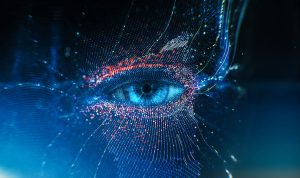Skincare Hacks Trending with Instant Results brings to light the most effective and popular methods that can transform your skin in no time. In today’s fast-paced world, everyone seeks quick solutions that deliver visible changes without extensive time or effort. Whether you’re prepping for a big event or simply looking to enhance your daily routine, these trending hacks promise to rejuvenate your skin and boost your confidence instantly.
From innovative products that cater to various skin types to age-old remedies reimagined for modern use, the beauty landscape is buzzing with options that claim to provide immediate effects. This guide dives into the latest skincare tips and tricks that are making waves, ensuring you stay ahead in the game of skincare.
In the ever-evolving landscape of technology, the role of artificial intelligence (AI) has escalated from a futuristic concept to a practical tool that influences various aspects of daily life. From virtual assistants on smartphones to complex algorithms that predict consumer behavior, AI’s presence is ubiquitous. This article explores the multifaceted impact of AI on modern society, its applications across different sectors, and the implications it holds for the future.AI can be defined as the simulation of human intelligence in machines that are programmed to think and learn like humans.
Its applications are vast and varied, spanning industries such as healthcare, finance, transportation, and entertainment. One of the most significant advancements in AI is machine learning, where algorithms are developed to parse data, learn from it, and make informed decisions based on that information. This capability has led to transformative changes in how businesses operate and how consumers interact with technology.In the healthcare sector, AI is revolutionizing patient care and diagnostics.
Machine learning algorithms analyze vast datasets from clinical trials and patient records, leading to more accurate diagnoses and personalized treatment plans. For example, AI-powered tools can analyze medical images with incredible precision, detecting anomalies that may be overlooked by the human eye. This not only enhances the accuracy of diagnoses but also speeds up the process, allowing healthcare professionals to focus on what matters most—treating patients.Moreover, AI is instrumental in drug discovery.
Traditional methods of developing new medications can be time-consuming and costly, often taking years of research and testing. AI accelerates this process by predicting how different compounds will interact with the body, thus streamlining the identification of promising candidates. Companies like Atomwise utilize deep learning algorithms to analyze millions of compounds quickly, significantly reducing the time and resources needed in the early stages of drug development.In the financial sector, AI is reshaping investment strategies and enhancing customer service.
Robo-advisors, which are automated platforms that provide financial advice based on algorithms, have become increasingly popular. These platforms analyze individual investment goals and risk tolerance to create a tailored portfolio, often at a fraction of the cost of traditional financial advisors. Furthermore, AI-driven analytics help financial institutions detect fraudulent activity by recognizing patterns and inconsistencies in transaction data, ensuring greater security for consumers.Transportation is another industry that has experienced a significant transformation due to AI.
The rise of autonomous vehicles exemplifies how AI is set to change the way we travel. Companies like Tesla and Waymo are at the forefront of developing self-driving technology that relies on complex algorithms to interpret data from sensors and cameras. This innovation promises to increase road safety, reduce traffic congestion, and lower emissions by optimizing driving patterns. However, the transition to fully autonomous vehicles raises questions about regulatory frameworks, liability, and job displacement for millions of professional drivers.Entertainment and digital media are also experiencing a shift with the integration of AI.
Streaming services like Netflix and Spotify use sophisticated algorithms to analyze user preferences, enabling them to recommend content that resonates with individual tastes. This personalization enhances user experience and keeps audiences engaged, ultimately driving subscriptions and revenue for these platforms. Additionally, AI is being used in content creation, with tools capable of generating music, writing scripts, and even producing visual art, raising discussions about the role of creativity in the age of machines.Despite the numerous benefits AI brings, it is not without its challenges and ethical considerations.
The potential for job displacement is a significant concern, as automation threatens to replace roles traditionally held by humans. While AI creates new opportunities, there is a pressing need for reskilling and upskilling the workforce to adapt to these changes. Governments and organizations must collaborate to develop training programs that equip employees with the skills necessary for the jobs of the future.Moreover, issues of privacy and data security are paramount in the age of AI.
With the increasing amount of personal data being collected and analyzed, concerns regarding consent and the ethical use of information are more relevant than ever. Regulations like the General Data Protection Regulation (GDPR) in Europe aim to protect individuals’ data rights, but enforcing compliance remains a challenge for many organizations.Another ethical consideration lies in bias within AI algorithms. Machine learning models learn from historical data, which may contain biases reflecting societal prejudices.
If not carefully managed, this can lead to discriminatory outcomes in areas such as hiring practices, lending decisions, and law enforcement. It is crucial for developers to implement strategies that promote transparency and fairness in AI systems, ensuring they benefit all individuals equally.Looking ahead, the future of AI promises even greater advancements, with ongoing research exploring areas such as natural language processing, computer vision, and general AI—machines that can perform any intellectual task that a human can do.
As AI continues to integrate into our lives, it will undoubtedly shape the way we work, communicate, and interact with the world around us.In conclusion, AI is a powerful force that is transforming various sectors and everyday life. Its applications in healthcare, finance, transportation, and entertainment illustrate its potential to enhance efficiency and improve outcomes. However, with these advancements come significant ethical and societal challenges that must be addressed to ensure a balanced and equitable future.
As we navigate this technological revolution, a collaborative approach involving technologists, policymakers, and society at large will be essential to harness the benefits of AI while mitigating its risks and limitations.
FAQs: Skincare Hacks Trending With Instant Results
What are some quick skincare hacks for busy mornings?
Opt for multi-functional products like tinted moisturizers or BB creams that hydrate and provide coverage simultaneously.
Do these hacks work for all skin types?

While many hacks are versatile, it’s essential to choose products and techniques that cater to your specific skin type for optimal results.
How often should I try new skincare hacks?
Can I rely solely on these hacks for skincare?
These hacks can offer instant results, but a consistent skincare routine and healthy lifestyle are crucial for long-term skin health.
Are there any risks involved with trying trending skincare hacks?
Yes, some products or methods may cause irritation or allergic reactions, so always exercise caution and consult with a dermatologist if unsure.






